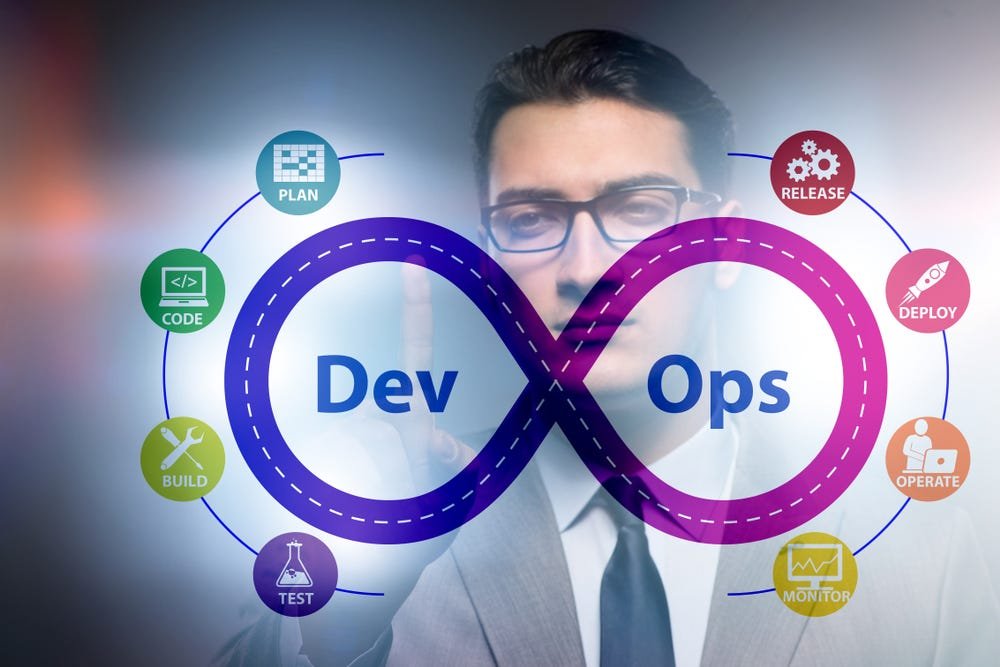Business
Top DevOps Tools Every Professional Needs in 2024
DevOps has now emerged as a critical approach for streamlining software development and deployment

DevOps has now emerged as a critical approach for streamlining software development and deployment processes in today’s rapidly evolving technological landscape. As organizations strive for agility, efficiency, and reliability in delivering software solutions, leveraging the right tools cannot be overstated. This blog delves into the top DevOps tools every professional needs in 2024. From continuous integration and delivery platforms to containerization and infrastructure automation tools, we explore the essential technologies that empower DevOps teams to collaborate effectively, accelerate delivery pipelines, and drive innovation in software development. Join us as we navigate the ever-expanding DevOps toolchain and discover the key tools shaping the future of DevOps in 2024.
DevOps is a cultural and technical approach aiming to streamline the collaboration between IT operations and software development. It emphasizes communication, collaboration, and integration between development and operations teams to deliver high-quality software solutions more efficiently and rapidly. DevOps practices involve automation, continuous integration, continuous delivery, and continuous monitoring, enabling organizations to achieve faster time-to-market, increased agility, and improved product quality.
Understanding DevOps tools is crucial as they facilitate collaboration, automation, and efficiency in software development and deployment processes. Knowledge of these tools enables professionals to streamline workflows, accelerate delivery pipelines, and enhance product quality. A DevOps certification further solidifies expertise in utilizing these tools effectively, validating skills and enhancing career prospects. Certification programs provide comprehensive training on DevOps principles, practices, and tools, equipping individuals with the knowledge and credentials needed to excel in DevOps roles. By staying abreast of DevOps tools and obtaining relevant certifications, professionals can remain competitive and contribute effectively to organizational success in today’s fast-paced IT landscape.
Top DevOps Tools
Git: Git serves as a decentralized version control system utilized to track modifications in source code throughout software development processes. It enables collaboration among developers by allowing them to work on merge changes, separate branches, and maintain a history of revisions. Git facilitates efficient code management, version control, and collaboration, making it a fundamental tool in DevOps workflows.
Chef: Chef is a configuration management tool that automating infrastructure and applications’ deployment, configuration, and management. It uses a declarative approach to define infrastructure as code, allowing administrators to specify desired system configurations and automatically enforce them across distributed environments. Chef enables consistency, scalability, and efficiency in managing infrastructure, making it essential for DevOps practices.
Jenkins: Jenkins is an open-source automation server for continuous integration and continuous delivery pipelines. It automates software application build, test, and deployment processes, enabling teams to deliver changes rapidly and reliably. Jenkins integrates with various version control systems, testing frameworks, and deployment tools, providing flexibility and extensibility in configuring CI/CD workflows.
Maven: Maven is a build automation tool that is primarily used for Java projects to manage project dependencies, build processes, and project documentation. It simplifies project management by providing a standardized project structure, dependency management, and build lifecycle management. Maven streamlines the development process, enhances project consistency, and facilitates collaboration among developers, making it an integral tool in DevOps environments.
Docker: Docker is a containerization platform used to package, distribute, and run applications in lightweight, isolated containers. It provides a consistent runtime environment across different infrastructure platforms, enabling developers to build, ship, and run applications seamlessly. Docker accelerates the development-to-deployment lifecycle, improves resource utilization, and enhances the scalability and portability of applications in DevOps workflows.
Kubernetes: It is an open-source container orchestration platform automating containerised applications’ deployment, scaling, and management. It provides automated scheduling, service discovery, and load balancing features, enabling organizations to deploy and manage containerized workloads at scale. Kubernetes enhances agility, scalability, and resilience in managing distributed applications, making it essential for containerized DevOps environments.
Slack: Slack is a platform that facilitates team communication and collaboration through chat channels, file sharing, and integration with various tools and services. It enables real-time communication, asynchronous collaboration, and information sharing, improving team productivity and coordination in DevOps workflows.
AWS Cloud Computing and Storage in DevOps: Amazon Web Services (AWS) offersa suite of cloud computing and storage services that enable organizations to build, deploy, and scale applications in the cloud. AWS services such as EC2, S3, and Lambda support DevOps practices by providing scalable infrastructure, on-demand resources, and pay-as-you-go pricing models. AWS services integrate seamlessly with DevOps tools and workflows, enabling organizations to leverage cloud computing for enhanced agility, scalability, and cost-efficiency.
Ansible: Ansible, an open-source automation tool, is employed for managing configurations, deploying applications, and orchestrating IT infrastructure.
It uses a simple YAML-based language to define tasks and playbooks, enabling administrators to automate complex workflows across distributed environments. Ansible simplifies infrastructure management, accelerates deployments, and enhances consistency and reliability in DevOps practices.
Puppet: It is a configuration management tool used for automating the deployment and management of IT infrastructure. It provides a declarative language for defining system configurations and enforcing desired states across distributed systems. Puppet enables administrators to automate infrastructure provisioning, configuration changes, and compliance management, improving efficiency and scalability in DevOps environments.
Conclusion
Mastering the top DevOps tools is essential for professionals seeking to excel in today’s fast-paced IT landscape. These tools streamline workflows, enhance collaboration, and accelerate software delivery, making them indispensable for DevOps practices. Pursuing a DevOps certification provides a structured learning path to acquire the skills and knowledge needed to effectively utilize these tools. With hands-on training and certification programs, individuals can gain proficiency in DevOps methodologies, tools, and best practices, enhancing their career prospects and allowing them to contribute effectively to organizational success in 2024 and beyond.
-

 Business5 months ago
Business5 months agoSepatuindonesia.com | Best Online Store in Indonesia
-

 Technology3 weeks ago
Technology3 weeks agoTop High Paying Affiliate Programs
-

 Tech5 months ago
Tech5 months agoAutomating Your Window Treatments: The Advantages of Auto Blinds
-

 Tech5 months ago
Tech5 months agoUnleash Your Potential: How Mecha Headsets Improve Productivity and Focus
-

 Instagram2 years ago
Instagram2 years agoFree Instagram Follower Without Login
-

 Reviews11 months ago
Reviews11 months agoAndroid Laptop vs. Chromebook: Which one is better?
-

 Instagram2 years ago
Instagram2 years agoIGTOK – Get Instagram Followers, Likes & Comments
-

 Business8 months ago
Business8 months agoFollow These 5 Tips To Avail Personal Loans At Lower Interest Rates




















